An unhealthy diet, irregular lifestyle and severe stress are factors that often adversely affect the condition of our intestines, leading to a number of ailments, such as diverticulosis of the large intestine, irritable bowel syndrome and intestinal motility disorders.c to a number of ailments, such as diverticulosis of the large intestine, irritable bowel syndrome and intestinal motility disorders. Intestinal problems go hand in hand with metabolic disorders, accumulation of intestinal deposits, accumulation of toxins, as well as digestive disorders, pain, cramps and deterioration of mood. An effective way to improve the condition of the intestines and improve their work are treatments involving herbs.
There is a wide range of medicinal plants that favorably affect the state and functioning of the intestines, but before reaching for them, it is worth finding out which herb is indicated for a particular ailment. This is because not every plant affects the intestines in the same way. Which herbs to reach for in particular intestinal problems?
Table of contents
- 1 The role of the intestines in the process of digestion, the importance of the intestines for the work of the body
- 2 Herbs for the intestines – in what ailments can they prove to be an invaluable lifeline?
- 3 Herbs helpful in the treatment of irritable bowel syndrome
- 4 Herbs for colonic diverticulosis
- 5 Intestinal cleansing herbs
- 6 Herbs that improve intestinal peristalsis, herbs for constipation
- 7 Diastolic herbs for intestines
- 8 Herbs for intestinal inflammation
The role of the intestines in the process of digestion, the importance of the intestines for the work of the body
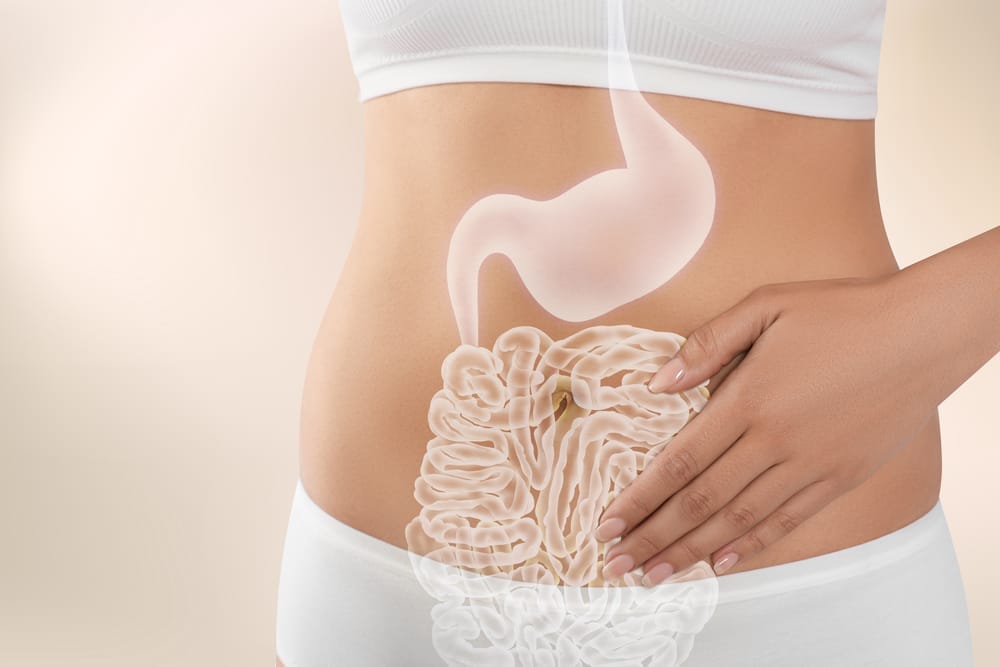
The intestines play a significant role in the digestion of food, but they also have a significant impact on other functions of the body. They are where the processing and breaking down of ingested food into smaller particles and then into individual nutrients such as vitamins, minerals, amino acids takes place. In the small intestine, absorption of these components takes place so that they can be transported to tissues and organs in the next step.
The intestines also perform a number of other tasks, such as the production of hormones and digestive juices, the intake of water from ingested food, and the mixing of food content and moving it toward the rectum. The large intestine is responsible for excreting food debris and metabolic by-products from the body.
The intestines also play an important role in maintaining the body’s microbial balance. They are the place where strains of bacteria that are beneficial to our health settle. They form the so-called microbiome, or microbiota, or intestinal microflora.
The gut microflora performs many functions, including helping to digest food and synthesize vitamins, stimulating the immune system and participating in the fight against harmful bacteria and other pathogens.
It should also be noted that the intestines perform an important elimination function, helping to remove harmful substances from the body. Cleansing the intestines is very important for maintaining the health of the digestive system and for preventing various health problems, such as allergies, skin ailments and liver disorders.
The importance of the intestines for the body’s work and well-being is enormous, so it is worth taking care of their proper work and supporting them, mainly through a healthy, balanced diet devoid of junk food. Treatments using herbs are also excellent.
Herbs for the intestines – in what ailments can they prove to be an invaluable lifeline?
In both Western and Eastern cultures, herbs have been used since ancient times as a remedy for many ailments. Among other things, they are used as natural remedies to help treat intestinal ailments. Thanks to their soothing, anti-inflammatory, shielding, tonic, diastolic properties, stimulatingdigestive processes and other precious actions, they can provide invaluable support in the fight against such ailments as:
- diverticulosis of the intestines,
- irritable bowel syndrome,
- intestinal pollution,
- weakening of intestinal peristalsis,
- intestinal inflammation,
- excessive intestinal peristalsis.
Herbs have a supportive effect on intestinal function, improve intestinal condition and protect against harmful factors. Properly selected medicinal plants can both provide relief from acute symptoms, improve the digestive process and protect the intestines from future conditions .
Both single herbs and herbal mixtures can be an effective form of treatment for intestinal problems. What we should keep in mind, regardless of the choice of herbal raw materials, it is always important to stick to proper dosages and to use herbs regularly, over a long period of time.
Herbs helpful in the treatment of irritable bowel syndrome
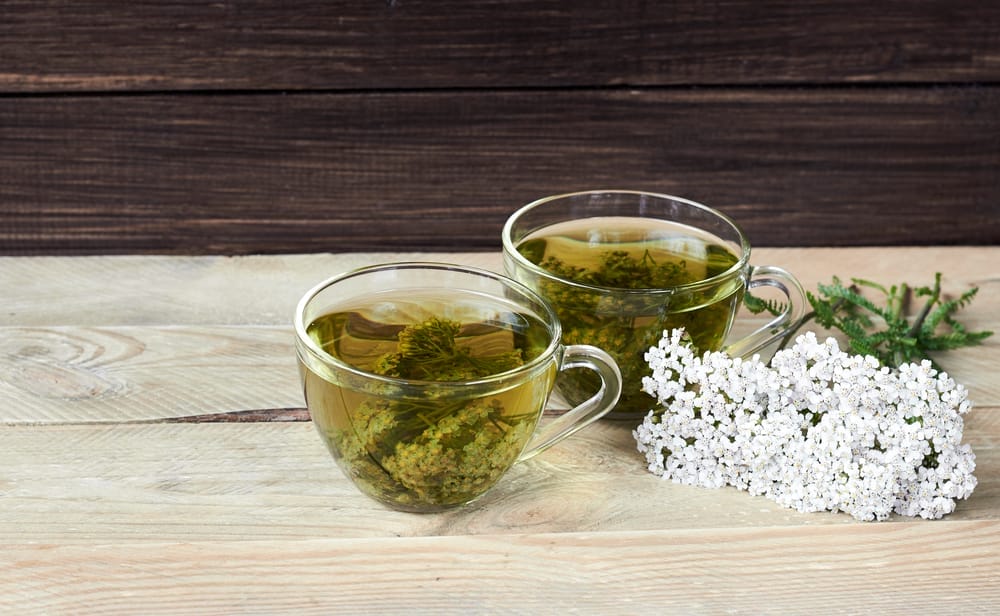
Irritable bowel syndrome (IBS) is a medical condition characterized by chronic intestinal disorders and increased reactivity. The main symptoms include severe lower abdominal pain, a change in bowel movements, a change in the appearance of stools, abdominal bloating, and the frequent occurrence of diarrhea or constipation.
Using the right herbs on a systematic basis can be a valuable support in stabilizing the bowels, reducing their reactivity and alleviating unpleasant discomforts.
Effective herbs that will work well for irritable bowel syndrome are:
- Bilberry fruit – especially helpful in irritable bowel syndrome, in the course of which diarrhea often occurs. It seals the mucous membrane of the stomach and intestines, slows intestinal peristaltic movements and inhibits diarrhea.
- Eggplant and plant ain – especially helpful in irritable bowel syndrome, in the course of which constipation often occurs. These herbs stimulate peristaltic movements of the intestines and facilitate bowel movement. At the same time, they have a protective effect on the intestinal mucosa. They are often found together in the form of so-called vital fiber.
Meet high-quality vital fiber enriched with a set of valuable ingredients: Fibre Select
- Yarrow – helps restore damaged intestinal mucosa. It exhibits antibacterial, anti-inflammatory, diastolic effects on the smooth muscles of the gastrointestinal tract, as well as windpipe, analgesic, astringent and antispasmodic effects.
- Mint – exhibits antispasmodic effects on the smooth muscles of the intestines, relieves abdominal pain and intestinal cramps. Reduces intestinal inflammation and aids digestion.
- Chamomile – has anti-inflammatory, soothing and antibacterial properties. Helps regulate intestinal bacterial flora. Acting as an antispasmodic, it reduces the pain and spasms that occur with irritable bowel syndrome.
- Melissa – has a soothing effect on the digestive system, reducing bloating, cramps and abdominal pain. It promotes improved digestive comfort. At the same time, it supports the work of the nervous system and has a calming effect.
- Calendula – exhibits anti-inflammatory and regenerative properties of the intestinal mucosa, supports digestive processes and relieves abdominal pain.
- Marshmallow – has a shielding effect on the intestinal mucosa, helps relieve irritation and inflammation. Provides relief from bowel problems, abdominal pain and intestinal cramps.
Herbs for colonic diverticulosis
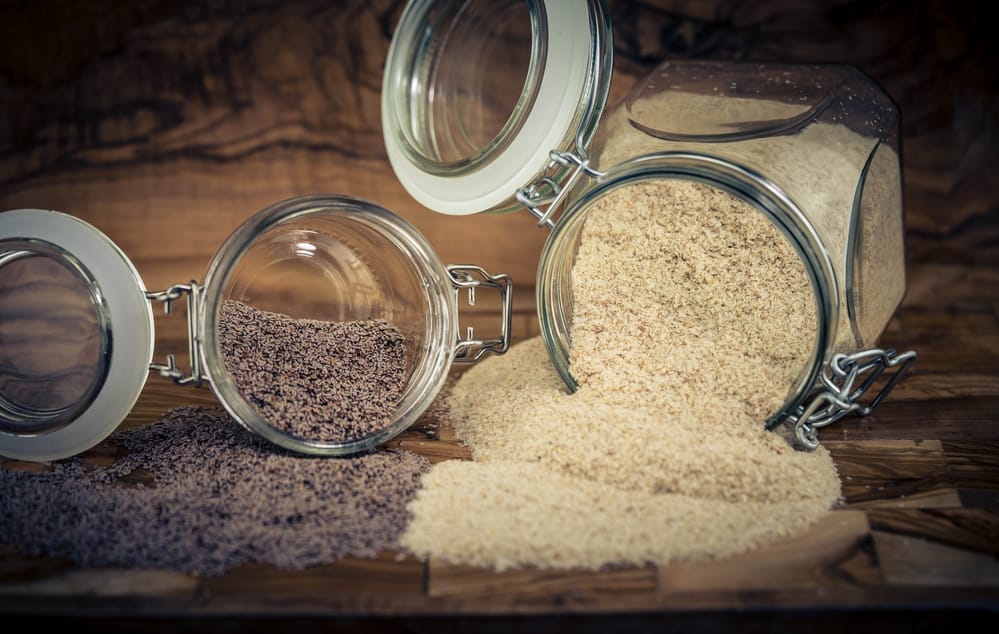
Intestinal diverticula are narrowings or protuberances within the mucosa of the walls of the large intestine. They can cause unpleasant discomforts, including pain, cramping, abnormal bowel movements, constipation, bloating, abdominal discomfort and problems digesting food.
The main cause of intestinal diverticulosis is an improper diet, based on highly processed products and containingtoo little dietary fiber, as well as too little fluid intake and abnormalities in the microbiota.
Properly selected herbs alleviate the persistent symptoms of diverticulosis of the intestines and improve digestive processes. They also support the regeneration of the intestinal mucosa and protect our intestines from irritation.
Among the most effective herbs for intestinal diverticulosis are:
- Psylliumseeds – rich in dietary fiber, psyllium seeds regulate intestinal peristalsis, prevent the formation of excessive pressure in the intestines, protect the intestinal mucosa and reduce the risk of further formation of diverticula.
- Fennel – has strong soothing, windmilling and anti-inflammatory properties, thanks to which itwhich reduces the intensity of pain, eliminates bloating, gas and other persistent symptoms of the digestive system. It also prevents the formation of new intestinal diverticula.
- Eggplant husks – thanks to their high fiber content, eggplant husks improve intestinal motility, prevent constipation and normalize the rhythm of bowel movements. They reduce the risk of further formation of diverticula and stimulate the process of cleansing the body of deposits and toxins.
- Aracelet – has antibacterial and anti-inflammatory effects, relieves intestinal pain, prevents digestive discomfort, prevents infections and hemorrhages in the digestive system. Reduces the risk of diverticulosis, it also exhibits astringent action and aids tissue regeneration processes.
- Cumin – stimulates the secretion of digestive juices, thus preventing gastrointestinal complaints such as indigestion, gas, bloating, abdominal pain. It has a diastolic effect and normalizes peristaltic movements of the intestines.
- Flaxseed – is rich in dietary fiber and lignans, which support digestive processes and regulate intestinal peristalsis. It eliminates inflammation in the digestive system, reduces intestinal spasms and other intestinal ailments, has a shielding effect, reduces the process of intestinal diverticulosis.
Intestinal cleansing herbs
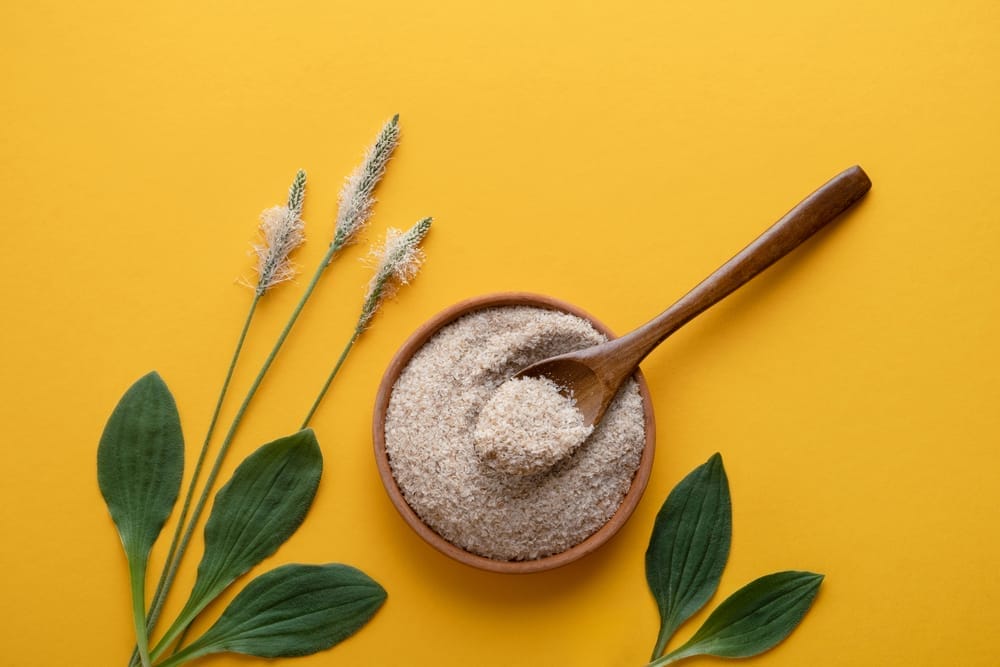
Modern lifestyle and unhealthy diet often result in the accumulation of toxins and deposits in the intestines, which in turn leads to metabolic disorders, weakness, chronic fatigue and other ailments.
Some herbs, due to their strong detoxifying properties, actively support the intestinal cleansing process, eliminating harmful substances and restoring balance in the body. Among them, there is a range of herbs with a laxative effect (such as senescence), but they should not be used too often (at most 2-3 times a week).
Intestinal cleansing herbs that are particularly worth paying attention to are:
- Senes – has a laxative effect, so it helps remove toxins and undigested food debris from the intestines. It stimulates intestinal worm movements, regulates the process of defecation and prevents constipation.
- Dandelion – has a cholagogic effect, stimulates gastric juice secretion, improves digestion, stimulates the cleansing of toxins. It improves metabolism and helps detoxify the intestines and liver. It also shows anti-inflammatory effects and promotes the regeneration of the intestinal mucosa.
- Buckthorn – is one of the most commonly used herbs for gastrointestinal ailments. It has a laxative effect, regulates the digestive process, improves intestinal peristalsis and facilitates the removal of toxins from the body.
- Lance-leaved plantain – stabilizes the work of the digestive system, exhibits soothing and anti-inflammatory effects. It also stimulates the process of cleansing the intestines of deposits and toxins and helps repair damage to the mucous membrane of the digestive system.
- Orthoslasm – has a shielding effect, soothes irritation of the intestinal mucosa, stimulates peristaltic movements of the intestines and aids in the process of their purification from toxins and accumulated deposits. It has an anti-inflammatory effect, normalizes the work of the digestive tract.
Herbs that improve intestinal peristalsis, herbs for constipation
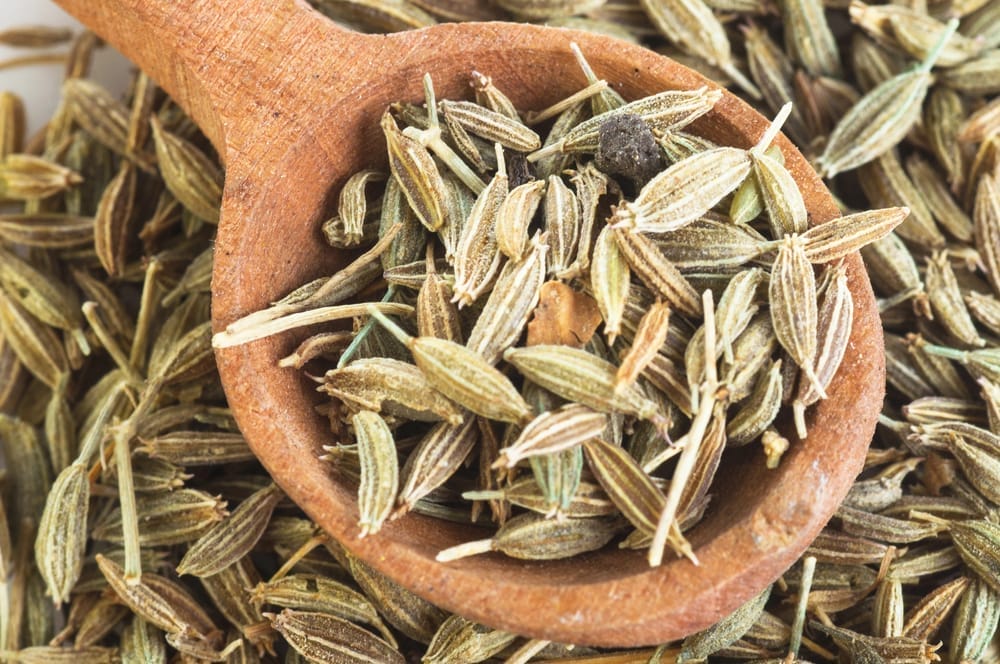
Intestinal peristalsis is the ability of the intestines to make worm-like movements that move digested food through the digestive tract toward the rectum. Weakening this process can lead to constipation, bloating, gas and abdominal pain, as well as the formation of intestinal deposits.
There are a number of herbs that effectively stimulate intestinal peristalsis, and these are:
- Sage – accelerates intestinal worm movements and stimulates the secretion of digestive juices, thus counteracting constipation and indigestion. It exhibits anti-inflammatory and antimicrobial properties, thanks to which it helps fight infections of the digestive system. It also has a relaxing effect on the smooth muscles of the intestines, fighting the feeling of discomfort in the abdominal cavity.
- Fennel – contains large amounts of essential oil, which stimulates intestinal peristalsis by stimulating smooth muscles in the digestive tract. It also has a soothing effect on the digestive system, improving the digestive process and facilitating bowel movement.
- Anise – contains essential oils that stimulate intestinal peristalsis, facilitates bowel movement. It exhibits a diastolic effect, relieves abdominal pain and stimulates the production of gastric juice, making digestion more efficient.
- Chamomile – exhibits soothing and anti-inflammatory properties, stimulates digestive processes and has a diastolic effect, thus preventing annoying discomforts that occur after heavier meals. It improves intestinal peristalsis, prevents constipation, protects the intestines from irritants.
Diastolic herbs for intestines
Intestinal cramps are a very unpleasant experience. They manifest themselves as acute abdominal pain occurring in short intervals or a feeling of alternating contraction and diastole of the intestines and changes in the rhythm of bowel movements.
Cramps can be caused by stress, irregular meals, excessive intestinal gas, food intolerance, digestive disorders. To counteract them, it is recommended to regularly consume dietary fiber, avoid foods that cause excessive gas, avoid stress and maintain a regular meal schedule.
Herbs with decongestant properties can also be helpful, such as:
- Peppermint – one of the most effective herbs for reducing smooth muscle tension in the digestive system, improvingdigestion (even with heavy and fatty meals) and brings real relief from painful, uncomfortable intestinal cramps and a feeling of fullness in the abdomen.
- Chamomile – an herbal expert in relieving stomach and intestinal cramps and pain, as well as in restoring the proper digestive process. What’s more, chamomile has an anti-inflammatory effect and helps regulate the bowel cycle.
- Cumin – has a diastolic and windpipe effect, helps eliminate intestinal gas and relieves pain and colic. It is a valuable support for digestive complaints after bloated, heavy meals. It eliminates bloating and allows you to regain a feeling of comfort in the abdominal cavity.
Herbs for intestinal inflammation
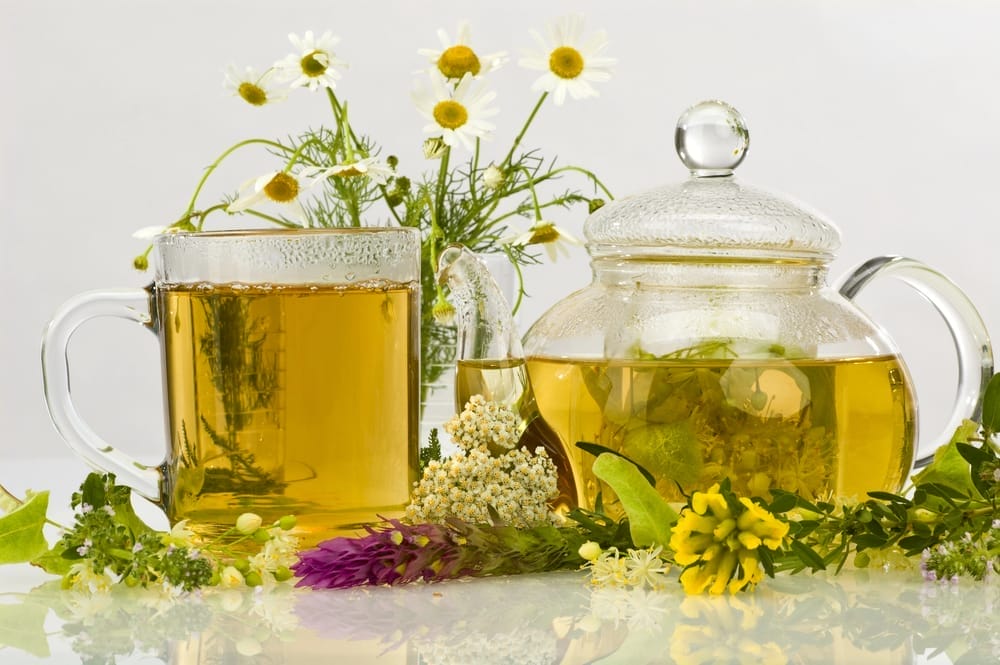
Inflammatory bowel disease is an inflammation of the intestinal mucosa that often leads to diarrhea, intestinal bleeding and persistent abdominal pain. There are several herbs that can prove valuable in improving the condition of the intestinal mucosa, stimulating the healing process of intestinal damage, resolving inflammation and stabilizing intestinal function.
When it comes to herbs that help with intestinal inflammation, raw materials such as:
- Chamomile – accelerates the regeneration of damaged tissues, has a soothing and tonic effect, protects the intestinal mucosa, guards normalized digestion and regular bowel movements.
- St. John’s wort – soothes irritation in the intestines, reduces inflammation, stimulates the production and flow of bile, relieves cramps in the abdominal cavity, has a slightly sedative effect, supports digestive processes.
- Valerian – has a calming effect, which makes it helpful for people suffering from ulcerative colitis due to stress and high nervous tension, it also has a diastolic effect and normalizes digestion.
- Melissa – relieves nervous tension, relaxes and at the same time has a diastolic effect, eliminates flatulence, helps stabilize digestive processes, calms intestinal function.
- Coltsfoot – has an astringent effect, thus accelerating the regeneration of damaged and irritated parts of the intestines, shows shielding abilities against the stomach and intestines, also has anti-inflammatory properties.
For intestinal problems, it is recommended to consume herbal infusions 2 times a day or 3 times a day, preferably between or after meals. Herbal teas should be consumed regularly over a long period of time.
It is also important to remember to consume enough water on a daily basis (about 1.5-2 liters) and to introduce a healthy diet. It is advisable to regularly reach for probiotic products (such as buttermilk, kefir, yogurt). Thanks to their content of beneficial intestinal bacteria, they ensure the restoration of healthy microflora in the intestines.

